I’m excited to bring you today’s interview about creativity! Even though I’m on here writing most weeks, to be honest, I don’t typically see myself as a creative person. I don’t have great decorating taste like my friends, I can’t assemble an amazing Lego structure out of nowhere like my husband, and when clients want me to paint with them, I paint the same mountain scene every time. Turns out, I needed to hear this interview with Heather!
In Ordinary Creativity: How to Survive with Joy, Heather Caliri unpacks how eugenicists, misogynists and racists skewed our understanding of creativity, reframes human ingenuity to include experiences like caregiving, disability, and suffering, and helps you claim your own way of being creative with fierce, unapologetic delight.
As you listen to the interview, I think you will be surprised, fascinated, and delighted about the topics that come up around this concept of creativity!
Heather’s background growing up in a “creative” family and the pressure that went with that:
So like I was just surrounded by very creative people, but the dynamics around that and my family were not always healthy. Like my kind of creativity, the performing kind was like the good kind. Whereas my sister like made art that disturbed people, and my parents were always like, Like she sort of exposed some of the not so healthy dynamics in her family, through her, through her art, well before I felt comfortable doing that.
And so that was very, like, I was always very nervous about that. And so there was this, I always had this sense that some kinds of creativity were okay and some kinds of creativity were not okay. And even like I would compare myself to my sister because I really respected how great of an artist she was. [There was a lot of] comparing yourself to other people and coming up short… I was held up in our family as the successful one, but at the same time I looked at my siblings and was like, I just really wish I could be like them.
The eugenics history behind the study of creativity
The first person to formally study creativity was Francis Galton. And I said, wait, what? The guy who invented eugenics was the first person to formally study creativity?
The whole idea of differential psychology is what makes human beings, some human beings have different abilities than others, and he really thought that. People who were wealthy and tall and male and white were inherently better. That that was why so many geniuses came from wealthy, established families that they cause it ran in the blood and so therefore, super genius, creative people were better and were like masters of the race and they should be supported and encouraged to have more babies because that would improve.
Misogynist and racist elements of how we approach creativity
A lot of women artists never got their due because they would make quilts. And why is it that we think quilts are not a form of abstract art? Like, why do we think that if it's made with fabric, it's not actual visual art, but if Mondrian makes a thing out of geometric squares made out of paint that suddenly that matters.
But if you put it on your bed, it doesn't matter. Like there is just so much weird supremacy built into visual arts. During colonialism, a lot of art was stolen from different African civilizations. And then artists like Picasso were inspired by it, or artists were inspired by Japanese, Japanese art, and they would say that the artists who basically stole and were riffing off these other artists were the real geniuses, but none of the original artists or their cultures were ever credited for the ideas that that inspired Picasso and other artists of the modernist period.
Reframing creativity and finding it in the ordinary everyday
When we realize that creative work and our everyday work — all of it is honoring, all of it is super important. Then we have more connections to other people. We're kinder to the other people around them because we see they matter in whatever genius ideas that I have and their labor is making all of it possible, like all of our collective labor is making all of this stuff possible, and without it, we're all sunk.
Sometimes creativity happens in the cracks of our daily life. And it is still important. It is still worth doing, even if it's only for 15 minutes. Even if nobody ever sees it, like ideally we would be all set up to share our work as widely and often we would like, but nobody has that.
The people that I admire, like most as as creative people, don't have that luxury. They're not super famous. They don't have maids. Many of them have chronic diseases. Many of them are caregivers. And I admire the fact that they put those things alongside each other and they say, not that they have to choose between one and or the other, nor that they can have it all, but that all of those things are important and the work can happen in small ways and still be meaningful.
And of course, listen to the full interview for more tidbits on the intersection of religious trauma and messages about creativity, and what it might mean to claim your identity as a creative person!
You can find Heather’s book here: Amazon or Heather’s website, and take her Creative Personality Test to learn how — not whether— you’re creative!
Do you consider yourself a creative person? Or after listening to the interview…can you? Did you have any idea about some of the dark background of the concept of creativity? (I didn’t!). What’s your favorite way to create? Leave your thoughts in the comments!
Music in podcast provided by:
Above by Sapajou | https://soundcloud.com/sapajoubeats
Music promoted by https://www.free-stock-music.com
Creative Commons / Attribution 3.0 Unported License (CC BY 3.0)
https://creativecommons.org/licenses/by/3.0/deed.en_US


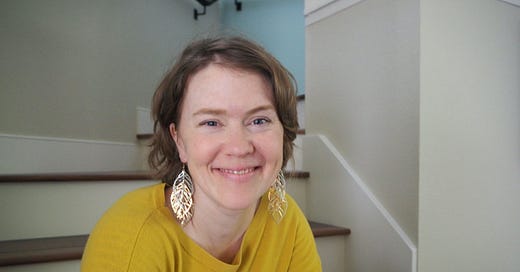




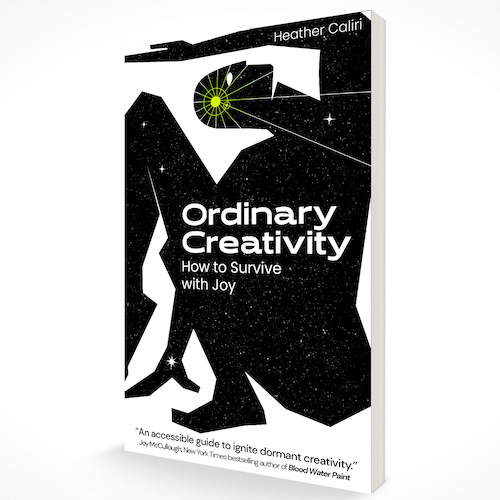




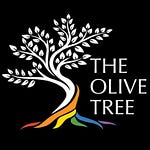
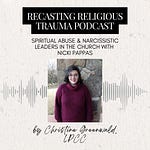

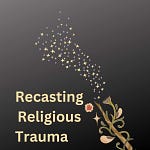
Share this post